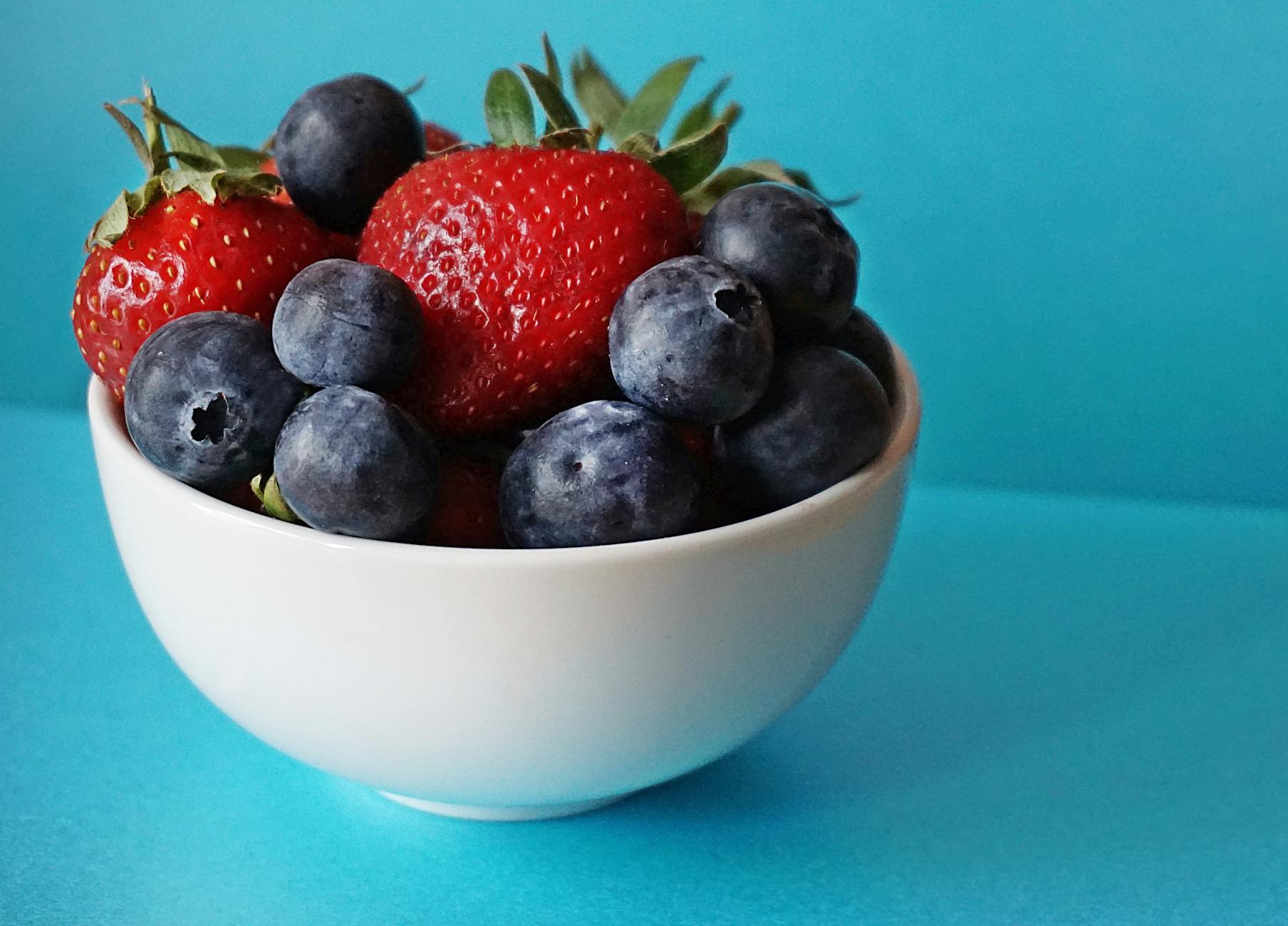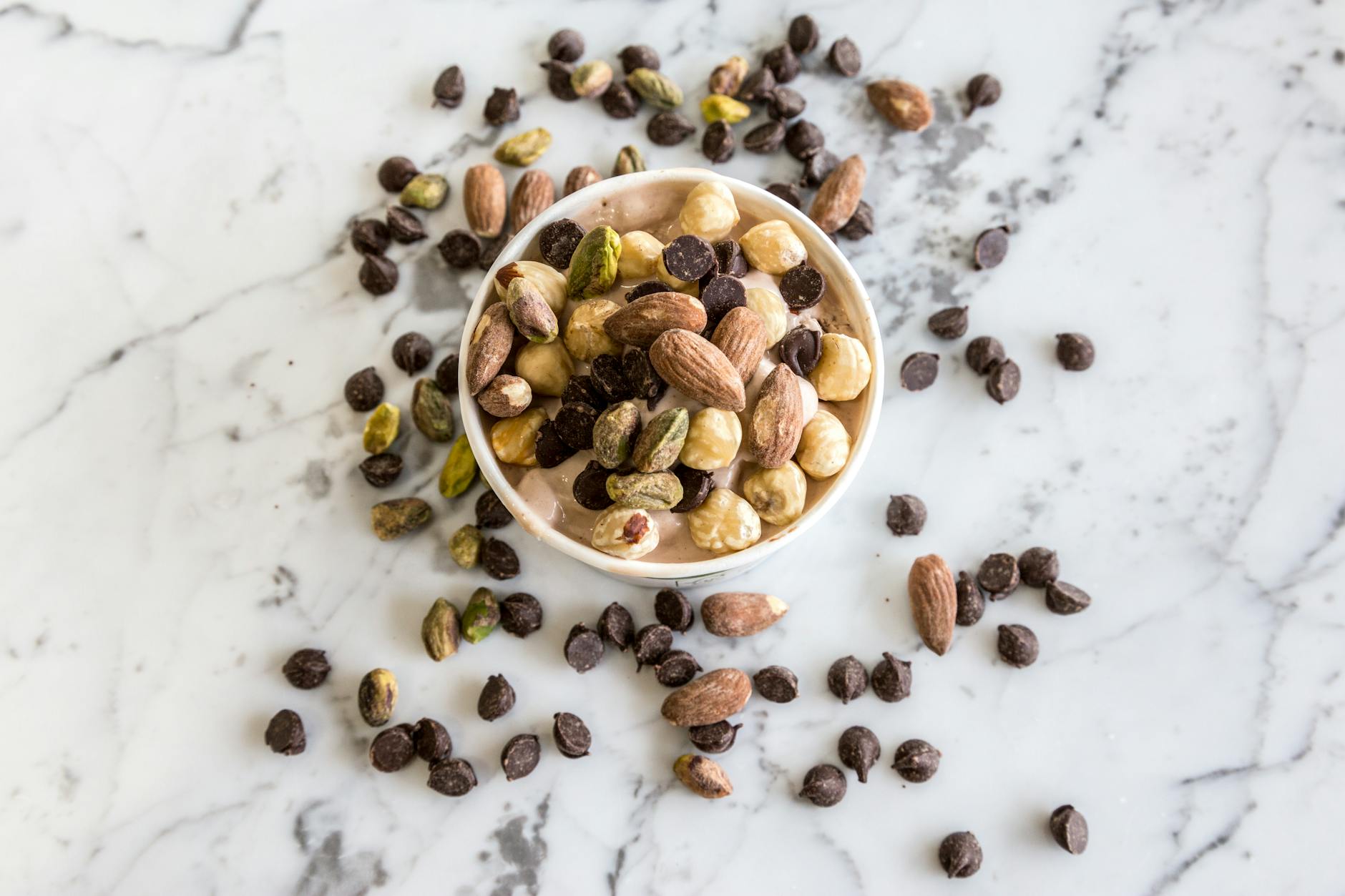10 Superfoods to Add to Your Diet Today
Imagine effortlessly boosting your immune system, enhancing your energy levels, and even potentially warding off chronic diseases. Sounds too good to be true? It's not! By incorporating these 10 incredible superfoods into your daily meals, you can unlock a treasure trove of health benefits. From antioxidant-rich berries to omega-3 packed fatty fish, we're about to embark on a culinary journey that will revolutionize your approach to eating.
In this blog post, we'll dive deep into the world of superfoods, exploring their unique properties and how they can positively impact your health. We'll start by understanding what makes a food "super," then move on to specific categories like berries, leafy greens, and ancient grains. Get ready to discover how these nutritional powerhouses can become your secret weapons for optimal health and vitality. Let's begin our superfood adventure! 🚀🥗💪
Understanding Superfoods

A. Definition and benefits
Superfoods are nutrient-dense foods that offer exceptional health benefits due to their high concentration of vitamins, minerals, antioxidants, and other beneficial compounds. These powerhouse foods are known for their ability to support overall health and well-being. Some key benefits of superfoods include:
-
Boosting immune system function
-
Reducing inflammation in the body
-
Promoting heart health
-
Supporting brain function
-
Enhancing skin health
-
Aiding in weight management
| Superfood | Key Benefits |
|---|---|
| Blueberries | High in antioxidants, improve memory |
| Kale | Rich in vitamins A, C, K, and folate |
| Salmon | Omega-3 fatty acids, high-quality protein |
| Quinoa | Complete protein, high in fiber |
B. How they boost overall health
Superfoods work synergistically to enhance various aspects of our health. Their high nutrient density means that even small portions can provide significant health benefits. For example:
-
Antioxidants in berries and leafy greens combat oxidative stress and reduce the risk of chronic diseases.
-
Omega-3 fatty acids in fatty fish support cardiovascular health and reduce inflammation.
-
Fiber-rich foods like ancient grains aid in digestion and promote a healthy gut microbiome.
C. Incorporating superfoods into daily meals
Adding superfoods to your diet doesn't have to be complicated. Here are some simple ways to incorporate them:
-
Blend berries and leafy greens into smoothies
-
Top salads with nuts and seeds for added crunch and nutrition
-
Replace refined grains with quinoa or other ancient grains in meals
-
Snack on a handful of mixed nuts or a piece of fresh fruit
By making small, consistent changes to your diet, you can harness the power of superfoods and improve your overall health and well-being. As we explore specific superfoods in the following sections, you'll discover even more ways to incorporate these nutritional powerhouses into your daily routine.
Berries: Nature's Antioxidant Powerhouses

Blueberries for brain health
Blueberries are often hailed as the ultimate brain food. Packed with antioxidants, particularly flavonoids, these tiny blue powerhouses have been shown to improve memory and cognitive function. Studies suggest that regular consumption of blueberries may help protect against age-related cognitive decline and neurodegenerative diseases like Alzheimer's.
Strawberries for heart protection
Strawberries are not only delicious but also offer significant heart health benefits. Rich in vitamin C, folate, and potassium, these vibrant berries can help lower blood pressure and reduce the risk of heart disease. Their high fiber content also aids in maintaining healthy cholesterol levels.
Goji berries for immune support
Goji berries, often referred to as a "superfood," are packed with nutrients that support immune function. These small, red berries are an excellent source of vitamin C, iron, and beta-carotene, all of which play crucial roles in maintaining a robust immune system.
Easy ways to add berries to your diet
Incorporating berries into your daily diet is both simple and enjoyable. Here are some creative ways to boost your berry intake:
-
Add fresh berries to your morning cereal or oatmeal
-
Blend frozen berries into smoothies
-
Use dried goji berries as a topping for salads or yogurt
-
Snack on a handful of mixed berries between meals
| Berry Type | Key Benefits | Best Ways to Consume |
|---|---|---|
| Blueberries | Brain health, memory improvement | Fresh, frozen, or in smoothies |
| Strawberries | Heart protection, blood pressure regulation | Fresh, in salads, or as a snack |
| Goji berries | Immune support, antioxidant boost | Dried, in trail mix, or steeped as tea |
By incorporating these antioxidant-rich berries into your diet, you'll be taking a delicious step towards better overall health. Next, we'll explore another group of superfoods that can significantly boost your nutrient intake: leafy greens.
Leafy Greens: Nutrient-Dense Dynamos

Kale's cancer-fighting properties
Kale, the king of leafy greens, is renowned for its potent cancer-fighting properties. This nutrient-dense powerhouse is packed with antioxidants and phytochemicals that help combat oxidative stress and inflammation, two key factors in cancer development. Here's a breakdown of kale's cancer-fighting components:
| Component | Cancer-fighting benefit |
|---|---|
| Sulforaphane | Inhibits cancer cell growth |
| Indole-3-carbinol | Promotes hormone balance |
| Carotenoids | Reduces oxidative damage |
| Vitamin C | Boosts immune function |
Spinach for bone strength
Spinach is a versatile leafy green that offers impressive benefits for bone health. Its rich nutrient profile includes:
-
Vitamin K: Essential for calcium absorption
-
Calcium: The building block of strong bones
-
Magnesium: Crucial for bone density
-
Vitamin D: Facilitates calcium uptake
Regular consumption of spinach can help prevent osteoporosis and maintain overall bone strength, making it an excellent addition to any diet.
Swiss chard for blood sugar regulation
Swiss chard is a colorful and nutrient-packed leafy green that plays a significant role in blood sugar regulation. Its unique combination of nutrients and compounds work together to:
-
Slow glucose absorption
-
Improve insulin sensitivity
-
Reduce inflammation
-
Support overall metabolic health
By incorporating Swiss chard into your meals, you can help maintain stable blood sugar levels and reduce the risk of type 2 diabetes.
Now that we've explored the benefits of these nutrient-dense leafy greens, let's move on to another category of superfoods that pack a protein punch.
Nuts and Seeds: Protein-Packed Snacks

Almonds for weight management
Almonds are a nutritional powerhouse that can aid in weight management. These crunchy nuts are rich in protein, healthy fats, and fiber, which help keep you feeling full and satisfied. Studies have shown that incorporating almonds into your diet can lead to reduced calorie intake and improved metabolic health.
Chia seeds for omega-3 fatty acids
Chia seeds may be tiny, but they pack a powerful nutritional punch. These seeds are an excellent plant-based source of omega-3 fatty acids, which are essential for heart and brain health. They also absorb liquid and expand in your stomach, promoting a feeling of fullness.
Walnuts for cognitive function
Walnuts are often called "brain food" due to their potential cognitive benefits. Rich in antioxidants and omega-3 fatty acids, particularly alpha-linolenic acid (ALA), walnuts may help improve memory and support overall brain health.
Creative ways to incorporate nuts and seeds
Here are some delicious ways to add these protein-packed snacks to your diet:
-
Sprinkle them on salads or yogurt
-
Blend them into smoothies
-
Use them as a crust for fish or chicken
-
Make homemade trail mix
| Nut/Seed | Key Benefits | Serving Size |
|---|---|---|
| Almonds | Weight management, heart health | 1 oz (23 nuts) |
| Chia Seeds | Omega-3s, fiber | 1 oz (2 tbsp) |
| Walnuts | Brain health, anti-inflammatory | 1 oz (14 halves) |
Now that we've explored the benefits of nuts and seeds, let's move on to another superfood category that's essential for a balanced diet.
Fatty Fish: Omega-3 Superstars

Salmon for heart health
Salmon stands out as a true superfood, particularly for its heart-healthy benefits. Rich in omega-3 fatty acids, salmon helps reduce inflammation, lower blood pressure, and decrease the risk of heart disease. Just two servings of salmon per week can significantly boost your cardiovascular health.
Sardines for bone density
Don't overlook these tiny powerhouses! Sardines are packed with calcium and vitamin D, making them excellent for maintaining strong bones. Their small size means you can eat the bones, providing an extra calcium boost. Sardines are also a sustainable seafood choice, making them good for both you and the environment.
Mackerel for anti-inflammatory benefits
Mackerel is another fatty fish that deserves a place on your plate. Its high omega-3 content helps combat inflammation throughout the body, potentially reducing the risk of chronic diseases like arthritis and asthma. Mackerel is also rich in vitamin B12, supporting brain function and energy production.
| Fish | Key Benefits | Recommended Servings |
|---|---|---|
| Salmon | Heart health, omega-3s | 2-3 times per week |
| Sardines | Bone strength, calcium | 2-3 times per week |
| Mackerel | Anti-inflammatory, B12 | 1-2 times per week |
Incorporating these fatty fish into your diet can provide numerous health benefits. Try grilling salmon with lemon, adding sardines to salads, or enjoying smoked mackerel on whole-grain toast. With their versatility and nutrient density, these omega-3 superstars are a delicious way to boost your overall health.
Now that we've explored the benefits of fatty fish, let's dive into another group of superfoods that pack a powerful nutritional punch: cruciferous vegetables.
Cruciferous Vegetables: Cancer-Fighting Champions

Broccoli's detoxifying properties
Broccoli stands out as a cruciferous vegetable with powerful detoxifying properties. Its high content of sulforaphane, a compound known for activating detoxification enzymes in the body, makes it a superstar in cancer prevention. This green powerhouse also contains indole-3-carbinol, which aids in estrogen metabolism and may reduce the risk of hormone-related cancers.
| Nutrient | Amount per 100g |
|---|---|
| Vitamin C | 89.2 mg |
| Vitamin K | 101.6 μg |
| Folate | 63 μg |
| Fiber | 2.6 g |
Cauliflower for digestive health
Next in line is cauliflower, a versatile cruciferous vegetable that promotes digestive health. Rich in fiber and antioxidants, cauliflower supports a healthy gut microbiome and aids in digestion. Its high sulforaphane content, similar to broccoli, offers additional anti-inflammatory benefits.
Brussels sprouts for vitamin K
Brussels sprouts round out our trio of cruciferous champions, boasting an impressive vitamin K content. This nutrient is crucial for:
-
Blood clotting
-
Bone health
-
Heart disease prevention
Additionally, Brussels sprouts provide a hefty dose of vitamin C and fiber, further contributing to their cancer-fighting reputation.
These cruciferous vegetables not only pack a nutritional punch but also offer versatility in the kitchen. From roasted side dishes to creative main courses, incorporating these cancer-fighting champions into your diet can be both delicious and beneficial for your health.
Ancient Grains: Fiber-Rich Alternatives

Quinoa for complete protein
Quinoa, often referred to as the "mother of all grains," is a nutritional powerhouse that has gained immense popularity in recent years. This ancient grain is not only gluten-free but also provides a complete protein profile, containing all nine essential amino acids. Here's a breakdown of quinoa's nutritional benefits:
| Nutrient | Amount per 100g |
|---|---|
| Protein | 14.1g |
| Fiber | 7g |
| Iron | 4.6mg |
| Magnesium | 197mg |
Amaranth for gluten-free nutrition
Amaranth is another ancient grain that packs a powerful nutritional punch. This tiny seed is naturally gluten-free and rich in protein, fiber, and micronutrients. Some key benefits of amaranth include:
-
High in lysine, an amino acid often lacking in other grains
-
Contains more than three times the average amount of calcium found in other grains
-
Rich in iron and magnesium
Buckwheat for blood sugar control
Despite its name, buckwheat is not related to wheat and is entirely gluten-free. This pseudo-cereal is an excellent choice for managing blood sugar levels due to its low glycemic index. Buckwheat is also:
-
High in rutin, a flavonoid with anti-inflammatory properties
-
Rich in resistant starch, which aids in digestive health
-
A good source of magnesium, which supports heart health
Recipes featuring ancient grains
Incorporating these fiber-rich alternatives into your diet can be both delicious and nutritious. Try these simple recipe ideas:
-
Quinoa breakfast bowl with fresh berries and nuts
-
Amaranth porridge with cinnamon and sliced bananas
-
Buckwheat pancakes topped with Greek yogurt and honey
Now that we've explored the benefits of ancient grains, let's move on to another category of superfoods that can revolutionize your gut health.
Fermented Foods: Probiotic Powerhouses

Yogurt for gut health
Yogurt, a probiotic powerhouse, is renowned for its gut-health benefits. This creamy delight contains live cultures of beneficial bacteria that support digestive health and boost the immune system. Regular consumption of yogurt can help maintain a balanced gut microbiome, which is crucial for overall well-being.
Kimchi for immune support
Kimchi, a traditional Korean fermented vegetable dish, is not only delicious but also packed with immune-boosting properties. This spicy and tangy superfood is rich in vitamins, minerals, and beneficial bacteria that support a healthy immune system. The fermentation process enhances the bioavailability of nutrients, making kimchi a nutritional powerhouse.
Kombucha for detoxification
Kombucha, a fermented tea beverage, has gained popularity for its potential detoxifying effects. This fizzy drink is loaded with antioxidants and beneficial bacteria that may support liver function and aid in the body's natural detoxification processes.
| Fermented Food | Main Benefits | Key Nutrients |
|---|---|---|
| Yogurt | Gut health | Probiotics, Calcium, Protein |
| Kimchi | Immune support | Vitamins A, C, K, Probiotics |
| Kombucha | Detoxification | Antioxidants, B vitamins, Probiotics |
Incorporating these fermented foods into your diet can provide a range of health benefits:
-
Improved digestion
-
Enhanced nutrient absorption
-
Stronger immune system
-
Better mood and mental clarity
-
Potential weight management support
Now that we've explored the world of fermented foods, let's move on to the vibrant and nutritious realm of colorful fruits.
Colorful Fruits: Vitamin-Rich Delights

Pomegranates for heart health
Pomegranates, with their vibrant red color and jewel-like seeds, are not just visually appealing but also pack a powerful punch for heart health. These fruits are rich in antioxidants, particularly polyphenols, which help protect the heart by reducing inflammation and lowering blood pressure.
Acai berries for skin health
Hailing from the Amazon rainforest, acai berries have gained popularity as a superfood for skin health. These dark purple berries are loaded with antioxidants, especially anthocyanins, which combat free radicals and promote a youthful complexion.
Citrus fruits for vitamin C boost
Citrus fruits like oranges, lemons, and grapefruits are well-known for their high vitamin C content. This essential nutrient plays a crucial role in boosting the immune system and promoting collagen production for healthy skin.
Tropical fruits for digestive enzymes
Exotic tropical fruits like pineapples and papayas offer more than just a taste of paradise. They contain natural digestive enzymes that aid in breaking down proteins and improving overall digestion.
| Fruit | Key Benefit | Notable Nutrients |
|---|---|---|
| Pomegranate | Heart health | Polyphenols, Vitamin C |
| Acai berries | Skin health | Anthocyanins, Omega-3 fatty acids |
| Citrus fruits | Immune boost | Vitamin C, Flavonoids |
| Pineapple/Papaya | Digestion | Bromelain (pineapple), Papain (papaya) |
Incorporating these colorful fruits into your diet can provide a wide range of health benefits:
-
Improved cardiovascular health
-
Enhanced skin appearance
-
Strengthened immune system
-
Better digestive function
Now that we've explored the benefits of these vitamin-rich fruits, let's move on to discuss superfoods in liquid form, which offer another convenient way to boost your nutrient intake.
Superfoods in Liquid Form

Green tea for metabolism boost
Green tea is a powerhouse beverage that can significantly boost your metabolism. Rich in catechins, particularly epigallocatechin gallate (EGCG), green tea can increase fat oxidation and improve insulin sensitivity. Here's a quick breakdown of its benefits:
-
Increases fat burning
-
Enhances physical performance
-
Improves brain function
-
Provides antioxidants
| Nutrient | Amount per 8 oz |
|---|---|
| Caffeine | 25-35 mg |
| EGCG | 50-100 mg |
| L-theanine | 6-20 mg |
Beetroot juice for athletic performance
Beetroot juice has gained popularity among athletes for its ability to enhance endurance and overall performance. The secret lies in its high nitrate content, which the body converts to nitric oxide, improving blood flow and oxygen delivery to muscles.
Bone broth for joint health
Packed with collagen, glucosamine, and chondroitin, bone broth is a liquid superfood that supports joint health. It's also rich in minerals that promote overall wellness.
Superfood smoothie recipes
Incorporating superfoods into smoothies is an excellent way to boost your nutrient intake. Here's a simple recipe to try:
-
1 cup spinach
-
1/2 banana
-
1/4 cup blueberries
-
1 tbsp chia seeds
-
1 cup almond milk
Blend all ingredients until smooth for a nutrient-packed start to your day.
Now that we've explored superfoods in liquid form, you have a variety of options to incorporate these nutrient-dense beverages into your daily routine.
Incorporating these 10 superfoods into your daily diet can significantly boost your overall health and well-being. From antioxidant-rich berries to omega-3 packed fatty fish, each superfood offers unique nutritional benefits that support various aspects of your health. By diversifying your plate with nutrient-dense leafy greens, protein-rich nuts and seeds, and probiotic-packed fermented foods, you're providing your body with a powerful array of vitamins, minerals, and beneficial compounds.
Remember, the key to reaping the benefits of superfoods lies in consistency and variety. Start by introducing one or two new superfoods to your meals each week, and gradually build a diverse, colorful plate that nourishes your body from the inside out. Whether you're snacking on antioxidant-packed berries, experimenting with ancient grains, or sipping on nutrient-rich smoothies, every small change can lead to significant improvements in your health and vitality.


Comments
Post a Comment